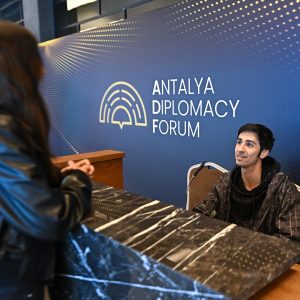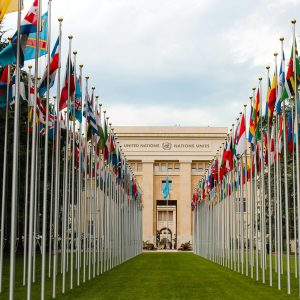Iran’s security chief meets top UAE officials to revitalize bilateral ties
TEHRAN (AA) – Iran’s top security official in a meeting with his Emirati counterpart on Thursday said cooperation and convergence must replace divergence and hostility in the Persian Gulf region.
Ali Shamkhani, who heads Iran’s Supreme National Security Council (SNSC), arrived in Abu Dhabi on Thursday at the invitation of Sheikh Tahnoun bin Zayed Al Nahyan, the UAE national security advisor.
He told his Emirati counterpart that Ebrahim Raeisi government’s “neighborhood policy” intends to “create a strong region” by bringing regional countries closer, Iran’s state news agency reported.
“To overcome existing challenges, the continuation of which is not in the interest of any country in the region, cooperation and convergence should replace hostility and divergence,” Shamkhani, a close aide to Iran’s Supreme Leader Ayatollah Ali Khamenei, was quoted as saying.
He described “differences and mistrust” among countries in the Persian Gulf region as a “serious obstacle to the development of the region.”
Accompanied on the high-stakes trip by top economic, banking and security officials, Shamkhani said the trip marks a “meaningful beginning” for the two countries to “enter a new phase of political, economic and security relations.”
Al Nahyan said Abu Dhabi values its “cooperation and friendship” with Iran and that the development of warm ties between the two countries is “among the priorities of the UAE”, as reported by Iran’s state news agency.
Shamkhani’s visit to Abu Dhabi came days after he led breakthrough talks in Beijing with his Saudi counterpart that resulted in the resumption of Tehran-Riyadh diplomatic ties after seven years.
According to a report, the Iranian official’s trip to the UAE was supposed to take place two weeks ago but had to be delayed due to the Saudi-Iran normalization deal, brokered by China.
The UAE and Iran restored their diplomatic ties last year, six years after the latter recalled its ambassador to Tehran in the wake of an attack on the Saudi Embassy in Tehran in January 2016 triggered by the execution of a prominent Saudi Shia cleric Shiekh Baqer al-Nimr.
After sending its ambassador back to Tehran in August last year, UAE’s Foreign Ministry said the move was in line with efforts to bolster bilateral ties with Iran “to achieve the common interests of the two countries and the wider region.”
Following a meeting with his counterpart, the top Iranian security official also met UAE President Sheikh Mohammed bin Zayed Al Nahyan on Thursday afternoon.
Iran’s media cited Shamkhani as telling the Emirati head of state that the two countries must take steps to expand bilateral relations and strengthen diplomacy.
The UAE president expressed his country’s readiness to “resolve misunderstandings with Iran and expand relations to the highest level.”
Meanwhile, Iran’s deputy foreign minister and top nuclear negotiator Ali Bagheri Kani on Thursday said Tehran will depute its ambassador to Abu Dhabi “in the near future.”
He insisted that Iran “did not cut” its relations with the UAE but that ties were downgraded, adding that the Foreign Ministry is in “final stages of administrative work” to send the envoy to Abu Dhabi.











